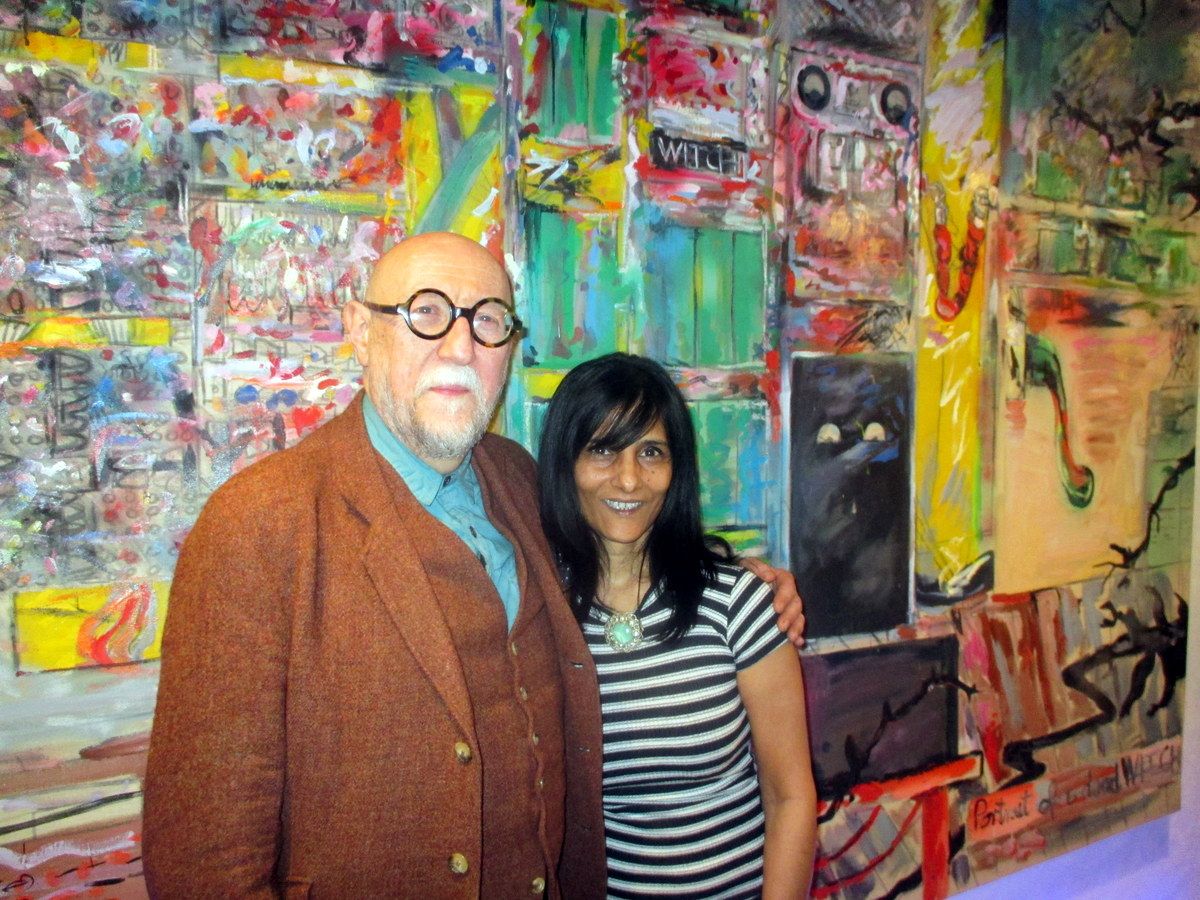
A long-lost painting of the world's oldest working digital computer has been rediscovered on the wall of a café in Manchester.
The Harwell Dekatron computer, also known as the WITCH (Wolverhampton Instrument for Teaching Computation from Harwell), was built by scientists in Harwell, Oxfordshire in 1949. It became operational in 1951 and was used at Wolverhampton College of Technology for just over 20 years. Then, in 1973, the computer was transferred to the Museum of Science and Industry in Birmingham to become part of an exhibition.
Artist John Yeadon first saw the computer in 1982, when he went to visit the museum. And he was captivated.
"This computer filled a room in the Birmingham museum with banks of valves and its ticker tape print out, it was assembled from components more commonly found in a British telephone exchange," Yeadon recalls in a blog post. "Over a day, I did drawings of the computer in my sketchbook."
When the Museum of Science shut down in 1997, the computer ended up dismantled and defunct. It was put into storage at the Birmingham City Council Museums Collection Centre.
Then in 2009, Kevin Murrell, a trustee of The National Museum of Computing (TNMOC) at Bletchley Park, embarked on a mission to fully restore the computer to working order with help from a group of volunteers. TNMOC houses the world's largest collection of functional historic computers, including the rebuilt Colossus, the machine that helped break German encryption during World War II.
"Now [the WITCH] is back in working order, it is used every day with school children at the museum," he tells Newsweek.
Murrell discovered that a painting of the computer also existed when Yeadon wrote an article in August 2015 for the Morning Star, a British socialist daily, in a desperate attempt to find his work of art. The museum subsequently launched a national search for the painting.
"[The WITCH] is a machine with a charmed life," Murrell continues. "Harwell could have destroyed it when they finished with it. Wolverhampton College could have destroyed it. It might have been lost forever in storage or broken up. The machine carries on, so we thought it would be quite nice if the painting could carry on with it."
As part of the nationwide search, it became clear that since 1984 the painting had been on loan to a school in Leicestershire. When the school became an academy, the painting was sold at auction for just £75 ($108) in October 2014.
"They [the school] flogged it off for a pittance and I thought it had been lost forever," Yeadon tells Newsweek. "The auction house wouldn't give me the name of the people who bought it."
It turns out the painting had passed through several owners until it ended up in the hands of Kaldip Bhamber, owner of the Jam Street Cafe in Manchester, who bought it in September 2015 because she wanted something vibrant to put on the wall.
It was only when the café's manager, Lee Maragh, Googled the painting at Christmas that they realized its history. They contacted the National Museum of Computing and Yeadon himself. "We were flabbergasted!" Maragh tells Newsweek.
"The artist thought he had lost his piece of work. It was very cathartic for him to hear we had it after 32 years," Bhamber adds.
In February, Yeadon visited the painting at its new location for the first time.
"I'm happy it's there in Manchester. It's safe and the owner likes it," he says. "The history of the original computer and my painting shared something in common, in the sense that they had both been neglected. So now the painting becomes an affectionate homage."
Uncommon Knowledge
Newsweek is committed to challenging conventional wisdom and finding connections in the search for common ground.
Newsweek is committed to challenging conventional wisdom and finding connections in the search for common ground.
About the writer
To read how Newsweek uses AI as a newsroom tool, Click here.








